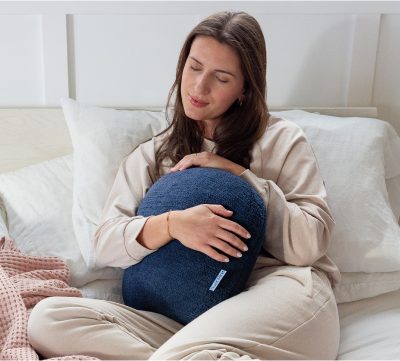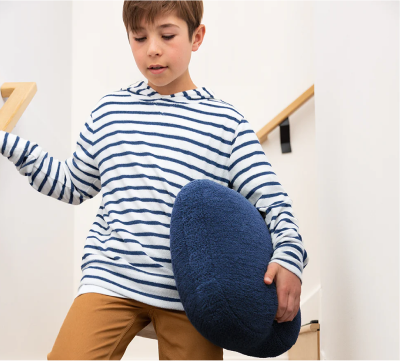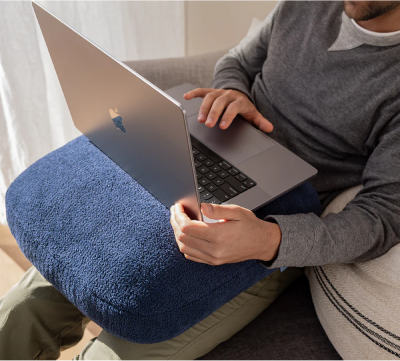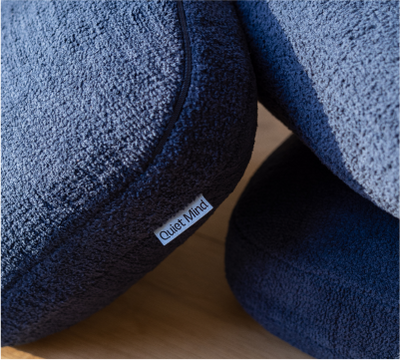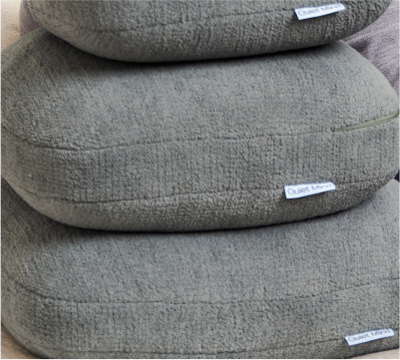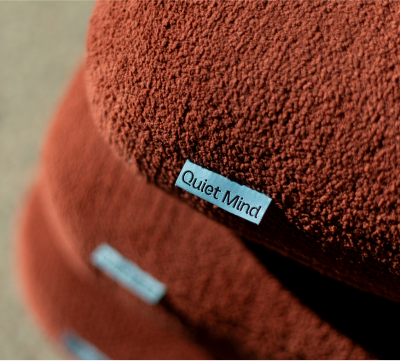Stress is a natural part of life. But when it builds up quietly over time—tight shoulders, shallow breathing, racing thoughts—it can start affecting your health, your energy, and your ability to feel present. If you’ve been wondering how to stop feeling stressful or overwhelmed, this guide offers deep support and realistic ways to reduce stress in both the moment and the long term.
Stress is not a personal failure. It’s your body’s stress response doing what it was built to do: protect you from threats. But in today’s world, everyday demands—like deadlines, family needs, or even decision fatigue—can keep that alarm system constantly switched on. Over time, stress can cause physical symptoms, increase anxiety and depression, and reduce your overall quality of life.
This article is here to help you stop feeling stressful by supporting your nervous system with gentle, body-based practices—not pressure or performance. Compassion, not control, is the foundation of sustainable stress relief.
Understanding the Nature of Stress
Stress is your body’s way of dealing with pressures or threats. The nervous system shifts into “fight or flight,” releasing stress hormones like cortisol and adrenaline. This short-term boost is called acute stress—and it can be useful. It helps you act quickly in a crisis, stay alert, or meet a challenge.
But when stress lingers, it becomes chronic, affecting your mental and physical health in deeper ways. According to the American Psychological Association, stress can cause trouble sleeping, tension headaches, digestive issues, and even increase your risk of long-term health conditions.
Common Causes of Stress
Stress doesn’t look the same for everyone, but many triggers fall into similar patterns:
- Uncertainty about health, work, or finances
- Overload of tasks without rest
- Emotional disconnection or loneliness
- Big transitions like moving, caregiving, or parenting
- Ongoing worry about the future or past
Recognising your personal causes of stress is one of the most effective ways to start shifting your stress response early.
Physical and Emotional Signs of Stress
It helps to notice how stress shows up in your body and mind. These signs of stress can be subtle at first, but they’re your body’s way of asking for care.
Physical symptoms of stress may include:
- Tight muscles (especially shoulders, neck, or jaw)
- Headaches or dizziness
- Changes in appetite
- Sleep disruptions or fatigue
- Digestive issues
- Increased heart rate or shallow breathing
Emotional or mental signs may include:
- Irritability or mood swings
- Feelings of overwhelm or panic
- Difficulty concentrating
- Negative thoughts or spiraling
- Emotional numbness or withdrawal
When these signs persist, they can begin to affect your overall health and wellbeing. The National Institute of Mental Health notes that chronic stress may contribute to multiple issues, including high blood pressure, heart disease, anxiety disorders, and more.
How to Deal with Stress in the Moment
Stress management doesn’t always mean doing more. Sometimes, the most powerful step is pausing. These in-the-moment methods to relieve stress are designed to help you gently and naturally—without judgment or pressure.
Deep Breathing and Breathing Exercises
One of the most accessible and effective ways to cope with stress is through breathing exercises.
Try this calming breath practice:
- Inhale through your nose for 4 counts
- Hold for 4 counts
- Exhale slowly through your mouth for 6 counts
- Repeat for 3–5 minutes
This activates the parasympathetic nervous system, helping your body shift out of fight-or-flight and into a calmer state. Even a few breaths can help you feel more grounded and reduce your stress levels.
Progressive Muscle Relaxation
Progressive muscle relaxation is a simple practice that helps release physical tension.
Start at your feet: gently tense each muscle group for 5 seconds, then release slowly. Move up the body—legs, abdomen, chest, shoulders, hands, and face.
This exercise can help reduce physical symptoms of stress and improve your overall quality of life by tuning into where your body holds tension. For deeper grounding, you can use the Quiet Mind’s weighted pillow across your lap or chest during this practice—it adds gentle pressure that helps the body release tension more fully.
Visualization and Guided Imagery
Your imagination is a powerful stress relief tool. Picture a natural setting that brings you peace: a quiet forest, a cozy room, or the ocean at sunset. Let yourself fully enter the scene—sights, sounds, smells, and feelings.
You can also explore mindfulness-based recordings or soothing music to guide the experience. Visualization helps your mind feel safe, which helps your body relax.
Longer-Term Lifestyle Shifts to Manage Stress
Stress resilience comes not from eliminating challenges, but from building the ability to stay steady in difficult times. These daily practices offer simple ways to help with stress by consistently signaling safety to your nervous system.
Physical Activity
Gentle movement is one of the most effective ways to help reduce stress and improve your mood.
Some options that support both body and mind include:
- Walking in nature
- Yoga or tai chi
- Stretching before bed
- Dancing or slow swimming
Physical activity helps release neurotransmitters like serotonin and endorphins, which can lift your mood and reduce symptoms of anxiety and depression.
Nourishing Foods
What you eat affects how you cope with stress.
To help reduce your anxiety and stabilize mood:
- Eat magnesium-rich foods like leafy greens, almonds, and pumpkin seeds.
- Include omega-3s from salmon, chia seeds, or walnuts.
- Avoid excess caffeine and processed sugars, which can spike cortisol.
- Stay hydrated—dehydration can mimic stress symptoms.
You don’t need a perfect diet. Just focus on eating foods that help you feel steady and energized.
Create a Nighttime Ritual That Signals Safety
To improve your sleep and help reduce your stress, build a calming ritual:
- Dim the lights 60 minutes before bed.
- Avoid screens and news scrolls during that time.
- Drink warm herbal tea.
- Listen to soothing music or a QuietMind wind-down audio.
- Use a weighted pillow to create gentle pressure that may help you relax.
Even if sleep doesn’t come easily, restorative rest still matters. Simply lying down in a dark room, eyes closed, breath slow—that’s healing, too.
Thought Patterns That Amplify Stress
You may notice that it’s not just what’s happening around you that causes stress—it’s also the way your mind responds.
Negative thoughts, rumination, or mental rehearsals of worst-case scenarios can keep stress hormones elevated, even when nothing dangerous is happening.
How to Cope with Unhelpful Thoughts
Try these mindfulness-based techniques to gently shift your inner dialogue:
- Name the thought (e.g., “This is the perfectionism voice”)
- Label it as a story, not a truth (e.g., “That’s the ‘I can’t handle this’ story again”)
- Return to the body—place a hand on your heart or stomach and breathe.
You’re not trying to erase your thoughts. You’re training your brain to recognize when it's looping and come back to the present moment.
This kind of awareness can help with stress and reduce anxiety and depression sometimes during difficult times.
Mindfulness and Relaxation Techniques
Mindfulness isn't about "being calm." It’s about showing up with full presence, even when things feel hard.
Start a Simple Mindfulness Practice
Mindfulness helps you manage stress by shifting your focus from stress and worry to what’s happening right now.
Begin with just five minutes:
- Sit comfortably.
- Close your eyes or lower your gaze.
- Focus on your breath.
- When your mind wanders (and it will), gently bring it back—without judgment.
This practice may help reduce your anxiety and improve your emotional flexibility over time.
Try Relaxation Exercises That Work for You
Everyone responds to relaxation differently. Explore what soothes your nervous system:
- Nature walks in a quiet place.
- Body scans or gentle touch.
- Journaling or sketching in a low-pressure setting.
- Weighted sensory tools that help you feel grounded.
These aren’t quick fixes. They’re effective ways to interrupt the stress response and build habits of calm. Quiet Mind provides a range of weighted pillows that can be used on your lap, chest, or shoulders to help you feel grounded and supported during moments of rest or transition.
When to Seek Extra Help
Sometimes stress becomes too heavy to carry alone. And that’s not a weakness—it’s simply a sign that you may need new tools or a safe relationship to hold space for your healing.
When Stress Becomes a Problem
According to the National Institute of Mental Health, it’s time to speak with a professional if:
- You’re struggling with stress most days.
- It’s affecting your sleep, relationships, or overall health.
- You feel stuck, overwhelmed, or unable to cope with daily tasks.
- Physical symptoms (like fatigue, pain, or stomach issues) are frequent.
Working with a therapist—especially one trained in cognitive-behavioral or mindfulness-based therapy—can help you find relief, reconnect with your strengths, and improve your overall quality of life.
You might explore:
- Talk therapy to help you deal with your problems constructively.
- Relaxation techniques to regulate physical and emotional symptoms.
- Support groups that help you feel connected and understood.
There is no shame in asking for help with stress. Every mind matters. Every story deserves space.
Stress is a Signal, Not a Sentence
Stress doesn’t mean you’re broken. It means your body is doing its best to protect you—sometimes too much, for too long. But you can take proactive steps to soothe that alarm system.
You don’t have to wait for a breakdown to rest.
You don’t have to escape to a mountain retreat to experience calm.
Instead, you can build small rituals—moments of pause, movement, breath, support—that gently tell your system: You’re safe now.
About QuietMind
At QuietMind, we understand that stress isn’t just in your head—it lives in your body, your breath, and your nervous system. That’s why we designed our weighted pillow to offer gentle, grounding pressure across your chest or lap—helping reduce stress and support emotional regulation.
Whether you're winding down for sleep, resetting during the day, or simply trying to reconnect with yourself, the QuietMind pillow can become part of your personal stress management ritual. No pressure to perform. Just softness, steadiness, and space to feel safe.
FAQs
What are 10 ways to reduce stress naturally?
Some effective ways include deep breathing, mindfulness, physical activity, talking to a friend, journaling, guided imagery, muscle relaxation, eating well, setting boundaries, and quality rest.
How can I recognise when stress is affecting my life?
If you notice changes in your sleep, mood, digestion, energy, or relationships, it may be time to take a closer look. These are common signs that stress affects your mental and physical health.
What are the best ways to cope with stress daily?
Create simple rituals like a morning walk, mindful breathing, or a tech-free wind-down at night. These self-care strategies can help with stress and restore balance.
Can stress lead to health conditions?
Yes. Chronic stress can increase the risk of anxiety, depression, high blood pressure, digestive issues, and more. That’s why learning to reduce your stress early is so important.
Is all stress harmful?
Not always. Some good stress (also called eustress) can motivate you and enhance focus. But when stress becomes chronic or overwhelming, it may start to affect your health and require support.
